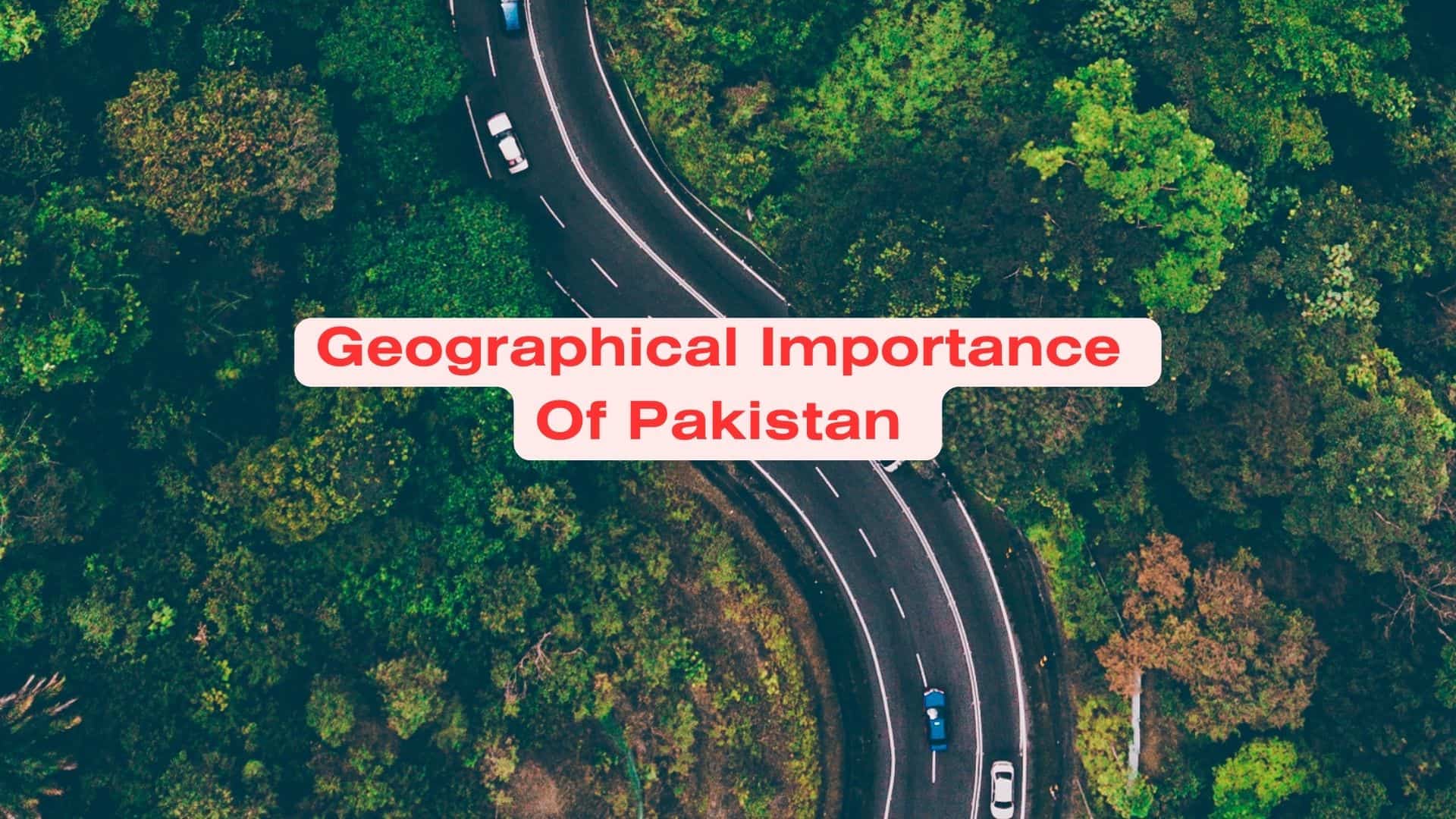Introduction
Pakistan, a South Asian country nestled at the crossroads of the Middle East, Central Asia, and South Asia, boasts a geographical significance that is nothing short of remarkable. Its diverse terrain, strategic location, and abundant natural resources make it a key player on the world stage. In this article, we will explore the geographical importance of Pakistan in the world and delve into its immense potential. Now below you can get complete details about the Geographical Importance Of Pakistan In The World & It’s Potential.
Strategic Location
Pakistan’s location at the intersection of South Asia, Central Asia, and the Middle East has long been a pivotal factor in global geopolitics. It shares borders with India, China, Afghanistan, and Iran, making it a bridge between the East and the West. This strategic position has made Pakistan an important player in regional stability and international trade.
Access to the Arabian Sea
Pakistan has a 1,046-kilometer coastline along the Arabian Sea. The port city of Karachi, one of Pakistan’s major urban centres, is home to the country’s largest seaport, Gwadar Port, which is rapidly becoming a crucial trade link for the landlocked Central Asian states. The Arabian Sea provides Pakistan with direct access to international shipping routes, facilitating trade with countries in the Middle East, Africa, and beyond.
Gateway to China
The China-Pakistan Economic Corridor (CPEC) is a testament to Pakistan’s geographical importance. CPEC is a network of roads, railways, pipelines, and other infrastructure projects that connect China’s western region to Pakistan’s Gwadar Port. This ambitious project not only enhances Pakistan’s connectivity with China but also positions Pakistan as a key hub in China’s Belt and Road Initiative (BRI), strengthening trade and economic ties between the two nations.
Read: Provinces Of Pakistan
Diverse Terrain and Climate
Pakistan’s geography is incredibly diverse, featuring everything from rugged mountains to fertile plains, deserts to lush valleys. The Himalayan and Karakoram mountain ranges run through the northern part of the country, including some of the world’s tallest peaks like K2. These landscapes support various ecosystems, making Pakistan a biodiversity hotspot. The country’s diverse climate zones also enable the production of a wide range of crops, contributing to its agricultural potential.
Abundant Natural Resources
Pakistan is blessed with abundant natural resources. Its vast mineral reserves include coal, salt, gypsum, limestone, and substantial reserves of oil and gas. These resources have the potential to boost economic growth and energy self-sufficiency. Moreover, Pakistan’s rich agricultural land is ideal for the cultivation of various crops, contributing significantly to the national economy.
Water Resources
The Indus River, one of the world’s longest rivers, flows through Pakistan, providing a crucial water source for agriculture and industry. The Indus Basin Irrigation System, one of the largest in the world, sustains the agricultural sector and supports food security not only in Pakistan but also in neighbouring regions.
Tourism Potential
Pakistan’s diverse landscapes offer immense potential for tourism. From the serene Hunza Valley to the historic ruins of Mohenjo-Daro and vibrant cities like Lahore and Islamabad, Pakistan has something to offer every traveller. The government’s efforts to promote tourism are gradually paying off, as more tourists discover the country’s natural beauty and cultural heritage.
Geostrategic Influence
Pakistan’s geographical importance also extends to its role in global security. As a nuclear-armed nation, Pakistan plays a vital role in maintaining regional stability, particularly in the context of its relationship with India and its involvement in the Afghan peace process.
Conclusion
In conclusion, Pakistan’s geographical importance in the world is undeniable. Its strategic location, abundant natural resources, and diverse terrain give it the potential to become a regional economic powerhouse. As the country continues to invest in infrastructure and promote tourism, it is well-positioned to harness its geographical advantages and play an even more significant role on the global stage in the years to come.

